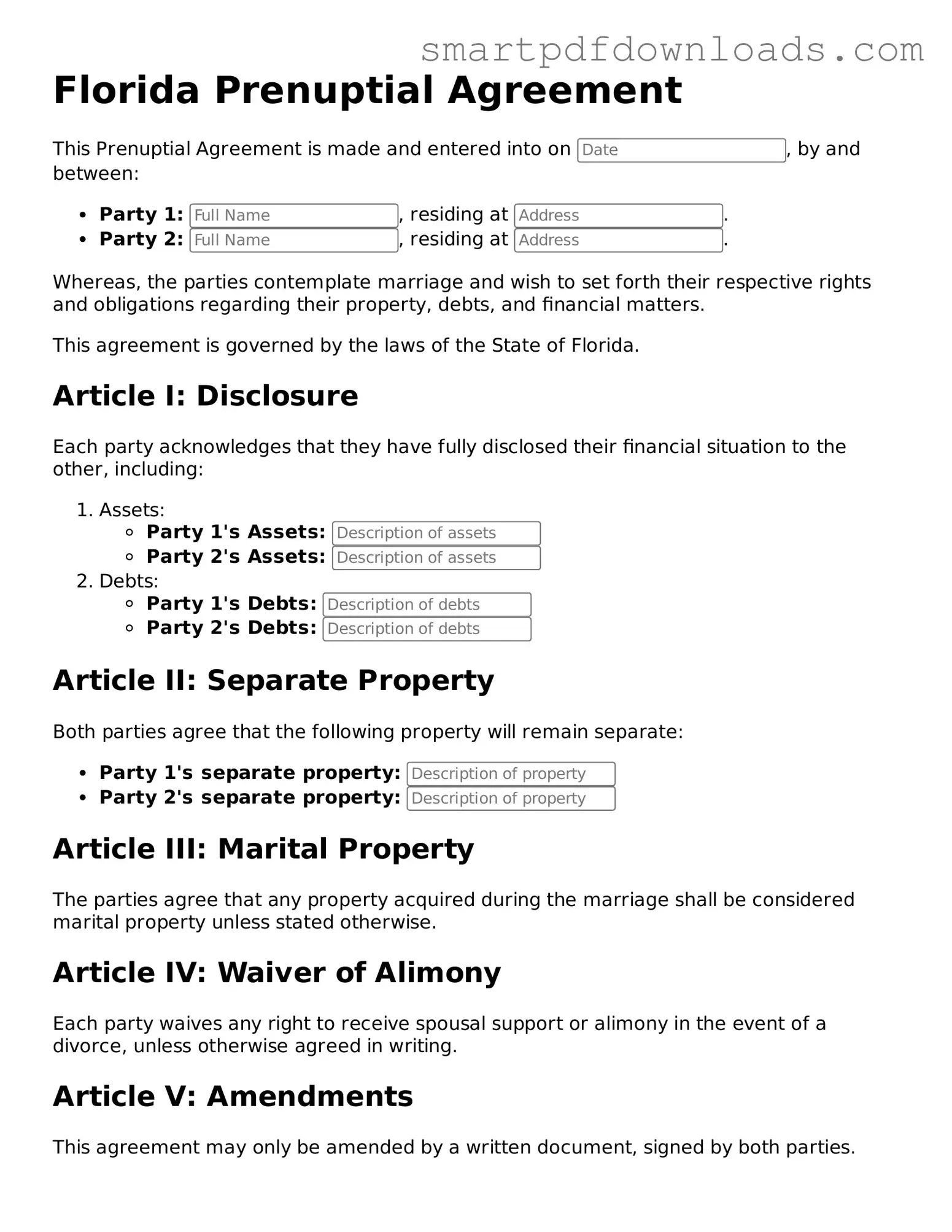Legal Prenuptial Agreement Form for the State of Florida
A Florida Prenuptial Agreement form is a legal document that outlines how a couple's assets and debts will be handled in the event of a divorce or separation. This agreement serves to protect individual interests and clarify financial responsibilities before entering marriage. Understanding its components and implications is essential for anyone considering this important step.
Edit Prenuptial Agreement Online

Legal Prenuptial Agreement Form for the State of Florida
Edit Prenuptial Agreement Online

Edit Prenuptial Agreement Online
or
⇓ PDF File
Finish the form and move on
Edit Prenuptial Agreement online fast, without printing.